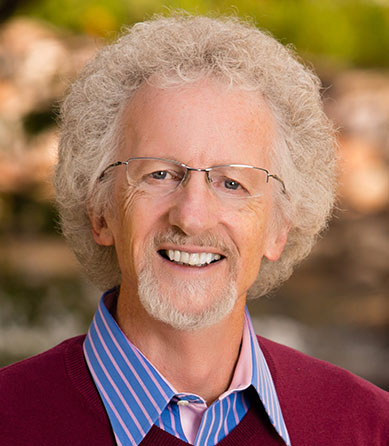The Likes of Us
In the late 19th century, William Carey felt a call to travel to India as a missionary to share the good news of Jesus. Pastors around him scoffed: “Young man, if God wants to save [anyone] in India, He will do it without your help or mine!” They missed the point of partnership. God does very little on earth without the likes of us.
As partners in God’s work on earth, we insist that God’s will be done while at the same time committing ourselves to whatever that may require of us. “Your kingdom come. Your will be done,” Jesus taught us to pray (Matt. 6:10). These words are not calm requests but holy demands. Give us justice! Set the world aright!
We have different roles to play, we and God. It is our role to follow in Jesus’ steps by doing the work of the kingdom both by our deeds and by our prayers.
We are Christ’s body on earth, to borrow Paul’s metaphor in Colossians 1:24. Those we serve, Christ serves. When we extend mercy to the broken, we reach out with the hands of Christ Himself.
Solid-Rock Faith
My wife and I both have grandmothers who have lived past 100. Talking with them and their friends, I detect a trend that seems almost universal in the reminiscences of older people: They recall difficult times with a touch of nostalgia. The elderly swap stories about World War II and the Great Depression; they speak fondly of hardships such as blizzards, the childhood outhouse, and the time in college when they ate canned soup and stale bread 3 weeks in a row.
Shocking Accessibility
When John F. Kennedy was president of the US, photographers sometimes captured a winsome scene. Seated around the president’s desk in the Oval Office, cabinet members are debating matters of world consequence. Meanwhile, a toddler, the 2-year-old John-John, crawls around and inside the huge presidential desk, oblivious to White House protocol and the weighty matters of state. He is simply visiting his daddy.
Happy Ending
In its “plot,” the story of the Bible ends up very much where it began. The broken relationship between God and human beings has healed over at last, and the curse of Genesis 3 is lifted. Borrowing images from Eden, Revelation pictures a river and a tree of life (Rev. 22:1-2). But this time a great city replaces the garden setting—a city filled with worshipers of God. No death or sadness will ever darken that scene. When we awake in the new heaven and new earth, we will have at last a happy ending.
Seeing Upside Down
In India I worshiped among leprosy patients. Most of the medical advances in the treatment of leprosy came about as a result of missionary doctors, who were willing to live among patients and risk exposure to the dreaded disease. As a result, churches thrive in most major leprosy centers. In Myanmar I visited homes for AIDS orphans, where Christian volunteers try to replace parental affection the disease has stolen away. The most rousing church services I have attended took place in Chile and Peru, in the bowels of a federal prison. Among the lowly, the wretched, the downtrodden—the rejected of this world—God’s kingdom takes root.
Amazing Grace
Pressed into service in the Royal Navy, John Newton was dismissed for insubordination and turned to a career trafficking in slaves. Notorious for cursing and blasphemy, Newton served on a slave ship during the cruelest days of trans-Atlantic slavery, finally working his way up to captain.
Believing In Advance
In a German prison camp in World War II, undiscovered by the guards, some Americans built a homemade radio. One day news came that the German high command had surrendered, ending the war. Because of a communications breakdown, however, the guards did not yet know this. As word spread among the prisoners, a loud celebration broke out. For 3 days, they sang, waved at guards, and shared jokes over meals. On the fourth day, they awoke to find that all the Germans had fled. Their waiting had come to an end.
Paranoia In Reverse
I remember watching television news reports in 1991 as the nonviolent revolution took place in the streets of Moscow. Russians who had grown up in totalitarianism suddenly declared, “We will act as if we are free,” taking to the streets and staring down tanks. The contrast between the faces of the leaders inside and the masses outside showed who was really afraid, and who was really free.
Surfacing
Human beings straddle visible and invisible realities—the natural and the supernatural. I thought about these two worlds when I went out in a boat to watch whales off the coast of New Zealand. A whale would rest on the surface for a while, then breathe deeply a few times, his exhalations creating a spectacular spout, before plunging a mile deep to feed on squid.

